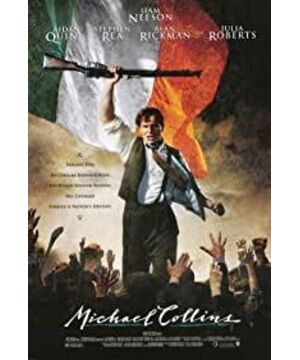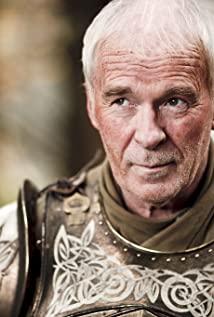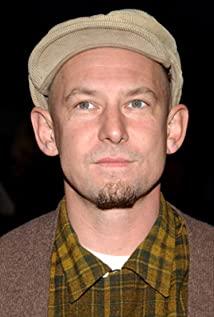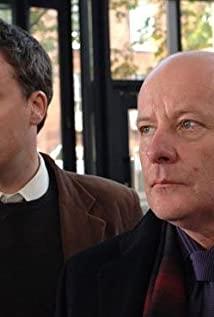The actor of Collins is said to be very famous. He specializes in playing such a righteous and awe-inspiring lone hero. He is also very handsome, but I just can't remember his name - I always feel that there is a little "soul" missing, and I can't make the whole film rumble. The kind of thing that wakes up, spirit? Spirituality? It can't be expressed, but it can't be expressed in words - some people don't lack it, such as the little girl who just won the Oscar for Best Actress, Reese Witherspoon, without her, Walk the Line is just a dull movie Bad movie, but with her, it becomes a blockbuster. Maybe I will write another article about Reese in the future, and I will go back and talk about "Michael Collins" first. There is also a person here that I can't forget, so I am typing on the keyboard now, that is, Eamon de Valera in the film. Valera's Alan Rickman, but his skill and spirit is just a tragedy in this film.
This statement is not as nonsensical as it might seem at first glance, if we make a fine distinction between the "two" de Valeras. One is the director's intended image of De Valera, which the film focuses on depicting. Rickman's performance sculpts this image to the fullest, making it look like nothing compared to Collins' inflexible actor; the other is The historically "real" (or at least more real than in the film) de Valera, who is perhaps the opposite of what the film is trying to direct the viewer's gaze to.
The film opens with the Easter Rising of 1916, and the appearance of all the characters remains the same until the death of Collins, who has always been a sturdy man and de Valera a crippled old man. These image designs intuitively determine the emotional tone of the audience towards the characters. However, in fact, de Valera, born in 1882, was only 8 years older than Collins; during the Easter Rising, the former was still in his thirties. In the photos of his arrest, his whole body, especially his eyes, showed a resolute air. , how can it not be reminiscent of the film (1919) when the "Republic of Ireland" and "Cabinet Heads" gathered, the old president who was dozing on the table and speaking slower than the Chinese leaders. Perhaps Rickman played such a kind of leader: at first glance, old and weak, with no reputation but no real power, he had to try to balance the forces of all parties, but in fact he was well versed in the dark ways and secretly controlled the situation with clever means (Kiernian). Branch? Weeping Uncle Liu?), but in any case, this is not De Valera, not a man who has been imprisoned several times (including after the Republican Army fought with the government army), was once sentenced to death, was repeatedly hated and slandered by the British, but Irish freedom fighter still elected Chairman of the League of Nations Advisory Council (32 years), and President of the League of Nations Parliament (38 years); tree; not the father of Irish constitutionalism (the 37 constitution), the creator of the "European Tiger" economic miracle in the 1950s and 1970s; not the one called "you couldn't imagine him doing anything opposed to the Sermon on the Mount" by political opponents Devout Catholics.
In order to highlight Collins' greatness and selflessness, the film is eager to deal with de Valera as a rival politician. Before visiting the United States (which won six million dollars in financial aid for Irish independence), Collins came to see him off and said to de Valera, "You're always my boss." When the latter returned home, he heard the former The villain called Collins "boss", and said angrily: "I want to see who is the real boss!" After Collins negotiated with the United Kingdom, De Valera got angry and dealt with a series of shots, All of them are intended to give the audience a psychological hint: the reason for the latter's opposition to the peace treaty is that the former's reputation for "high power and shock" is growing; Power and position; such a use of military force, false public and private, it is really intolerable, the sin is irreparable, and so on.
It's okay to be able to justify it, but when the film handles it like this, it finally fails to make up for its shortcomings. Collins told Harry Boland (the two fell in love with the same girl in the film, who was also an important figure at the time and had said in 1922 — after de Valera parted ways with the Irish government — that de Valera "is at GHQ, hale and well, the same gentle, honest, straight-forward, unpurchaseable man that you knew. All the calumny that has been heaped upon him is British inspired; they failed to bribe or intimidate him, they now try the weapon of slander ". The actor is also not brilliant) when explaining why de Valera sent him to negotiate with the British, he said: the latter, as the president, negotiates in person, there is no room for manoeuvre, and Collins' signature does not mean the final decision , it is easier to deal with the British. However, after de Valera received the draft treaty, he was furious and cursing at Collins. If it is to be considered rationally, the two shots cannot but be at odds with each other. If Collins' analysis was correct, de Valera had known that the treaty would not be what he wanted, and that the former's signature with Arthur Griffith had no legal effect, how could he be so bluff in private? And if the content of the treaty is unexpected, doesn't it mean that Collins' psychological analysis and political judgment are wrong, why should the film use a special scene to make it long? (In fact, De Valera's arrangement did have strategic considerations. At the time, British Prime Minister Lloyd George was a master at the negotiating table, and people in the world called "Welsh wizards", even though De Valera, who had more diplomatic experience Going out in person, the result is not necessarily better than sending Collins, who calls himself "I'm a soldier, not a politician", and can only rely on the method of invalid signing. This further proves that De Wa The nonsense of Lera's rage plot.)
Then De Valera's image - under the brilliant performance of Alan Rickman - is even worse. I have to say that Rickman is a talented actor. It is said that in the scene of De Valera's public speech, he faced thousands of extras in the audience without stopping or reshooting. indignant. But it was this scene that made the audience disgusted with the "politician" to the extreme.
inflammatory speech. Genius and calm escape from prison (this little story is really one of the highlights of the film). But that's just a few shots. More (contradictory to the decisive character of these few shots) the film describes de Valera as a "weak, mannered, sniveling prima donna" (in the words of film critic Roger Ebert) - in the film , after the outbreak of the civil war, Collins went to Cork to meet with de Valera. After the latter heard his message, he burst into tears and couldn't help it... and the next series of shots seemed to vaguely imply that this meeting was a Conspiracy, De Valera wanted to take the opportunity to get rid of Collins, so he repented and wept before, etc. In fact, as Roger Ebert said, this film is really going to create an "Irish villain", "to balance the British villain" enemy".
Saying this, I'm not blaming the film or the director, or that Collins is inferior to De Valera. The problem is not one or two movies, nor one or two people. For example, when making a movie "Zhou Enlai", it is natural to highlight Zhou Enlai's image and downplay everyone around him, including Mao, Zhu, Liu, Deng and others. If the film is "Zhu De", the prime minister will inevitably step back behind the scenes. The real world is always rich, multi-dimensional, and full of infinite interpretability, and each person’s perspective can only cover a few aspects. As someone said, “History is already all-encompassing, so why read novels?”- — not to mention the movies that are usually only an hour long. There are some trade-offs, some additions and omissions, this is also understandable. However, the choice and omission, imaginative extravagance, and its limits are issues that need to be studied. In order to elevate the master, he did not hesitate to distort the facts, violated rationality, and even slandered Zheng Chenggong as a wolf son and made Sima Qian a minister, probably not the same as the former. "Michael Collins" is naturally not as low as Hu Mei's statement, but when I live here, I can't help but "think of white arms when I see a short-sleeved shirt", and I complain without any pretense.
There are a few more digressions. Big Mouth Roberts plays the woman Collins and Boland scramble to push back and forth in the film. Nancy? Ketty? I forgot the name because it really doesn't appeal to me. Love is the eternal theme and the eternal Hollywood gimmick - in fact, I am not a pretentious person, and I would love to see a little bit of love in this heavy theme, but this Nancy or Ketty really did not let me find out Anywhere worth fighting for two politicians. Maybe the director wanted her to show a little "personality", so she didn't listen to Collins's advice and went up to draw the curtains as soon as she walked in... Maybe the American taste (or what Americans thought the Irish had tasted) was weirder.
View more about Michael Collins reviews











